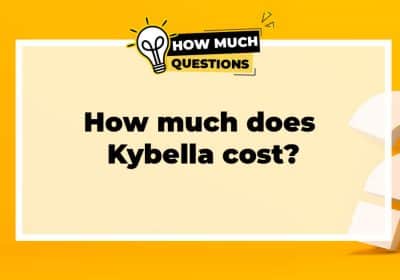
How Much Do You Make as a Foster Parent? Understanding Foster Care Compensation
Foster parenting is a noble and rewarding journey that provides a loving home to children in need. As potential foster parents, it's natural to have questions about the financial aspects of foster care. One common question that arises is, "How much do you make as a foster parent?" In this article, we will delve into the topic of foster care compensation, exploring the different types of payments, factors that affect compensation, and additional financial assistance available for foster parents.
Overview of Foster Care Compensation
Foster care compensation is designed to provide financial support to foster parents, helping them meet the needs of the foster children in their care. These payments, often referred to as foster care reimbursements or stipends, are intended to cover expenses associated with raising a foster child, including food, clothing, shelter, and other necessities.
Purpose of Foster Care Compensation
The primary purpose of foster care compensation is to ensure that foster parents have the necessary financial resources to adequately care for the foster children in their homes. By providing financial support, these payments help alleviate the financial burden and enable foster parents to provide a nurturing and stable environment for the children.
Factors Affecting Foster Care Compensation
The amount of compensation that foster parents receive can vary based on several factors. These factors typically include the specific needs of the foster child, the experience and training of the foster parent, and the type of foster care placement.
The needs of the foster child play a significant role in determining the level of compensation. Children with unique medical or behavioral needs may require additional financial support. Similarly, the age of the child can impact the compensation, as older children may have different needs compared to infants or toddlers.
The experience and training of the foster parent also come into play. Experienced foster parents who have completed relevant training programs may receive higher compensation due to their ability to provide a higher level of care and support to the children.
Additionally, the type of foster care placement can influence the compensation amount. Different types of placements, such as emergency placement or long-term foster care, may come with different reimbursement rates to account for the varying level of commitment and resources required.
Types of Foster Care Compensation
Foster care compensation encompasses various payment options that aim to support foster parents in meeting the needs of the children under their care. Let's explore some of the common types of foster care compensation:
Daily Maintenance Payment
One type of compensation is the daily maintenance payment, which provides foster parents with a set amount of money to cover the day-to-day expenses of raising a foster child. This payment helps with costs such as food, clothing, transportation, and personal hygiene items.
Clothing Allowance
Foster parents may also receive a clothing allowance to assist with purchasing clothing and shoes for the foster children. This allowance recognizes the need to provide appropriate and well-fitting clothing as children grow and change sizes.
Medical and Dental Coverage
To ensure the well-being of foster children, many foster care programs provide medical and dental coverage for the children. This coverage helps cover the costs of routine check-ups, vaccinations, medications, and dental treatments, ensuring that foster children receive necessary healthcare.
Additional Support Services
In addition to financial support, foster care programs often offer additional support services to foster parents. These services may include counseling for foster children, respite care (temporary relief for foster parents), and other specialized services aimed at meeting the unique needs of foster families.
Determining Foster Care Compensation
The process of determining foster care compensation involves various considerations, including foster care payment rates, foster parent training and licensing, and assessing the foster child's needs.
Foster Care Payment Rates
Foster care payment rates vary by state and can be influenced by factors such as the cost of living and the availability of resources. Each state has its own set of reimbursement rates that outline the compensation provided to foster parents. It is important to note that payment rates can change over time, so foster parents should stay updated on the latest rates specific to their state.
Foster Parent Training and Licensing
To become a foster parent, individuals must typically complete training programs and meet specific licensing requirements. The completion of training and obtaining the necessary license demonstrates the foster parent's commitment and preparedness, which can affect the level of compensation received.
Foster Child's Needs Assessment
When a child is placed in foster care, an assessment is conducted to determine their individual needs. This assessment takes into account factors such as the child's age, medical conditions, behavioral needs, and any specialized care requirements. The assessment helps determine the appropriate level of support and compensation required to meet the child's needs.
Additional Financial Assistance for Foster Parents
In addition to the regular compensation provided for foster care, there are additional financial assistance programs available to support foster parents.
Adoption Assistance Programs
For foster parents who decide to adopt their foster children, adoption assistance programs may be available. These programs provide financial aid and support services to help with the costs associated with the adoption process.
Tax Benefits for Foster Parents
Foster parents may also be eligible for certain tax benefits. These benefits can include tax credits and deductions for qualifying expenses related to foster care. It's important for foster parents to consult with a tax professional or refer to the relevant tax guidelines to understand and take advantage of these potential tax benefits.
To receive foster care compensation, foster parents must navigate the reimbursement process effectively. Here are some key steps to consider:
Applying for Foster Care Compensation
Foster parents should apply for foster care reimbursement through the designated agency or organization responsible for administering foster care programs. The application process typically involves submitting required documents and completing expense reports to outline the costs incurred while caring for the foster child.
Record-Keeping and Documentation
Maintaining accurate records and documentation is crucial for the reimbursement process. Foster parents should keep track of expenses related to the care of the foster child, such as receipts for purchases, medical bills, and other relevant documents. This documentation will serve as evidence of the costs incurred and will support the reimbursement claims.
Conclusion
Foster care compensation plays a vital role in supporting foster parents and ensuring the well-being of the children in their care. The financial support provided through various reimbursement options helps alleviate the financial burden associated with foster parenting. Additionally, additional assistance programs and tax benefits offer further support to foster parents.
It's important to note that foster care compensation and financial assistance can vary based on location and individual circumstances. Foster parents are encouraged to reach out to their local foster care agencies or organizations to obtain specific information regarding compensation rates, reimbursement processes, and available support programs.
Fostering is a meaningful and rewarding experience, but it's essential to remember that the decision to become a foster parent should be based on the desire to provide a safe and loving home for children in need. If you are considering foster care, it is recommended to consult with professionals and seek guidance from relevant authorities to ensure you are well-informed about the legal requirements and responsibilities involved.
Disclaimer: The information provided in this article is for informational purposes only and should not be considered legal, financial, or professional advice. Consultation with professionals and relevant authorities is recommended for accurate and up-to-date information regarding foster care compensation and support programs.
Frequently Asked Questions (FAQ)
How much do foster parents get paid monthly?
Foster parent compensation varies depending on various factors such as the needs of the foster child, the experience of the foster parent, and the type of foster care placement. The payment can range from a few hundred to several thousand dollars per month. It is important to contact your local foster care agency or organization to get accurate information on the specific payment rates in your area.
Are foster care payments taxable?
Foster care payments are generally not considered taxable income. The Internal Revenue Service (IRS) treats foster care reimbursements as nontaxable income, as long as they are used for the care and support of the foster child. However, it is recommended to consult with a tax professional or refer to the IRS guidelines to ensure compliance with tax regulations in your specific situation.
Can you work and be a foster parent?
Yes, it is possible to work and be a foster parent. Many foster parents balance their careers while providing a loving and supportive home for foster children. However, it is important to consider the time and commitment required to meet the needs of the foster child. Flexible work arrangements or supportive employers can be helpful in managing both responsibilities effectively.
Do foster parents receive any additional support besides financial compensation?
Yes, foster parents may receive additional support besides financial compensation. Support services can include training programs, counseling services for foster children, respite care (temporary relief for foster parents), and access to support networks. These additional services are aimed at ensuring the well-being of both the foster child and the foster parent throughout the foster care journey.
Can you adopt a foster child and still receive financial support?
Yes, in many cases, foster parents who adopt their foster child may still receive financial support. Adoption assistance programs can provide financial aid and support services to help with the costs associated with the adoption process. These programs may include adoption subsidies, which continue to provide financial support even after the adoption is finalized. The specific eligibility criteria and available support may vary depending on the location and the individual circumstances.
How long does it take to become a foster parent?
The process of becoming a foster parent can vary depending on several factors, including the requirements set by the foster care agency or organization in your area, the completion of necessary training programs, and the completion of a home study. The timeframe can range from a few months to several months, depending on individual circumstances and the efficiency of the process.
Can you choose the age and gender of the foster child you care for?
In some cases, foster parents may have the opportunity to express their preferences regarding the age and gender of the foster child they are willing to care for. However, it is important to keep in mind that the ultimate goal is to provide a safe and loving home for children in need. Foster care agencies and organizations strive to make the best possible match between foster parents and foster children, considering the needs and best interests of the children involved.
Can you become a foster parent if you already have children?
Yes, it is possible to become a foster parent if you already have children. Many foster families consist of both biological and foster children. Having children of your own can bring valuable experience and a supportive environment for foster children. However, it is important to consider the dynamics and potential impact on your existing family when making the decision to become a foster parent.
What qualifications do you need to become a foster parent?
The qualifications to become a foster parent can vary depending on the requirements set by the foster care agency or organization in your area. Common qualifications may include being at least 21 years old, completing a background check, participating in training programs, and having a stable and safe home environment. It is recommended to contact your local foster care agency or organization for specific information on the qualifications and requirements in your area.
Can you become a foster parent if you rent your home?
Yes, it is possible to become a foster parent if you rent your home. The suitability of the home environment is assessed during the home study process, which typically includes evaluating the safety, space, and overall suitability of the living arrangement for the foster child. Renting a home does not automatically disqualify individuals from becoming foster parents, as long as the home meets the necessary requirements and provides a stable and nurturing environment.
Note: The answers provided above are general and may vary based on the specific regulations and guidelines of your local foster care agency or organization. It is recommended to contact your local agency for accurate and up-to-date information regarding foster care and foster parent requirements in your area.
If you want to know other articles similar to How Much Do You Make as a Foster Parent? Understanding Foster Care Compensation you can visit the category Personal Care and Beauty Costs.
- Overview of Foster Care Compensation
- Types of Foster Care Compensation
- Determining Foster Care Compensation
- Additional Financial Assistance for Foster Parents
- Navigating the Foster Care Compensation Process
- Conclusion
- Frequently Asked Questions (FAQ)
- How much do foster parents get paid monthly?
- Are foster care payments taxable?
- Can you work and be a foster parent?
- Do foster parents receive any additional support besides financial compensation?
- Can you adopt a foster child and still receive financial support?
- How long does it take to become a foster parent?
- Can you choose the age and gender of the foster child you care for?
- Can you become a foster parent if you already have children?
- What qualifications do you need to become a foster parent?
- Can you become a foster parent if you rent your home?
Leave a Reply







You might be interested in